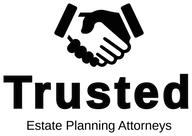
Trust Attorney Las Vegas | CPA with Business Tax And Personal Tax 1.1
Hello and welcome to the trusted podcast. I’m your host Blake Johnson. And today we have a wonderful guest. We have Trevor hall of hall and associates. He’s a CPA. And we’re going to talk about, uh, businesses. We’re going to talk about tax strategies for your business and from a personal standpoint and some of the key things that you can do to help make sure that you pay as little tax as possible. Of course, always legally, we want to make sure that we’re always following the law there to offer Trust Attorney Las Vegas. Uh, but Trevor, thanks for joining us today. Thanks for having me on. All right. So why don’t you, uh, give us a little background about yourself and your firm and what makes you a trusted expert?
Nice. Um, I’m a local, born and raised to Vegas. Um, the industry and tax here. I’m very familiar with. I’ve been doing tax and accounting for 18 years. I prepare both corporate and individual returns. I prepare financial statements, compilation review level, uh, mainly for state board licensing type things. Um, I also help my clients in IRS audit process. I work directly with them and the IRS auditors, uh, defending their returns, most cases, their returns. I didn’t prepare. That’s how I meet people. Not a lot of mine are ending up in that case, but I do have a lot of experience there with top Trust Attorney Las Vegas. I also have a certification that’s us called a certified fraud examiner. CFE. Um, I’ve used that to do forensic reporting for court cases. I’ve done valuation of assets discovery for divorce cases. I’ve been an extrovert witness on the stand. Um, and I also help implement controls for companies for cash management internally. And I have to say in most of the cases I’ve done that we’ve been successful in catching internal staff or owner partners stealing. Just remarkable. But when you don’t have controls, that’s what you get. Um, I ran my own firm for 12 years. We have four CPAs, one enrolled agent, and I have three other team members that are sitting for the CPA exam right now. And that’s basically a broad view of what our company and my firm looks like.
All right, awesome. Um, I’ve worked with Trevor, uh, for a number of years now. So, you know, I’m going to put my stamp of approval. Obviously, you know Trust Attorney Las Vegas is great for you, I wouldn’t have you on the show if I didn’t feel that way. So, um, let’s talk about personal taxes first. I think that’s more applicable to the wider range of everybody that that’s listening. So what are some of the biggest mistakes that you see people make on their personal tax returns? Maybe you, it’s focusing on or you know, some things they can do to make sure that they’re not going to get audited or just other mistakes that they’re making?
This is a great question and I get this all the time. Um, I have several points I want to go over, but the first one that I want to talk about is people don’t balance the risk of being audited when they’re doing their tax filings. Most people are in a rush and it’s just how much money can I get or what’s my biggest deduction? Yes, I want all the deductions possible. Yes, I want to pay as little tax as possible or get a refund with Trust Attorney Las Vegas. Um, but people don’t consider the risk of being audited. And I’ll, I’ll use an example. There is a home office deduction that you can take. A lot of people will say, I use some part of my home and I use it for work. I’d like to deduct that against my income. So you’d like a really easy deduction. Most people have that expense, easy to pick up.
The IRS is required to audit a certain number of home office deductions every year. So if you take the deduction, you’re automatically in an additional audit selection pool. And not that your audit selection is great, but it’s just a thing to be aware of. The paperwork required to do the home office deduction is one of the more involved deductions. So you’re going to have more time the the client putting the data together or the tax preparer inputting all of the data to get solid Trust Attorney Las Vegas. It’s still very involved. So what are the ultimate deduction from all of this work? Tax savings when I get done with all of it is 25 bucks, something minimal. I’m increasing my risk of getting audited for $25 we just don’t want the deduction now. What if there are other ways that I could take deductions that would essentially get me a similar deduction or even a larger deduction, but it wouldn’t have any risk at all.
And I really think those are the types of things that should be considered. If anything in the personal taxes area that I could have you guys take away today, it would be knowing where your risk lies and the different things that you’re taking deductions. You want to be smart and take all the deductions possible, but you really ought to be aware of which ones are exposing you to your risk for very minimal deductions that give Trust Attorney Las Vegas. I see returns all the time that have these very, very risky positions that are not getting them very much deduction. And I know if you explained it to that person, they would tell you, Oh, I don’t want that deduction. It’s not worth it. So there’s some, there’s an education there and again going to, you should have a trusted CPA or a trusted advisor. If they’re not educating you, that’s one of the issues and you shouldn’t be trusting them.
You should know where those risks are. Another point is not providing all the documents to the tax preparer. Um, for some reason, and I want to really get out any of these misconceptions that are out there as much as possible. People will come in and they’ll have some tax form. Maybe they pulled some money out of their retirement account or, or maybe they sold a couple of stocks and somehow in their head they think, if I don’t give this to my tax preparer and he does a really good job and submits it, maybe the IRS won’t catch it. I won’t have to pay tax on it. That will never happen. The IRS has a computer system that matches all of the documents. If you’re getting a IRS standard form from an employer or a stock brokerage, the IRS is getting the same form. The computer matches it up so you’re going to get caught. There isn’t a miss to a, just a matter of when, um, some people come in with that naive attempt at trying to scam or get over the tax repair. If you’re not being honest with your trusted advisor, they’re not going to be able to give you the proper advice. So make sure that you’re giving all of the documents to the tax repair and some people are busy or in a rush and they miss things. If you know you have items, make sure that you’re bringing them.
